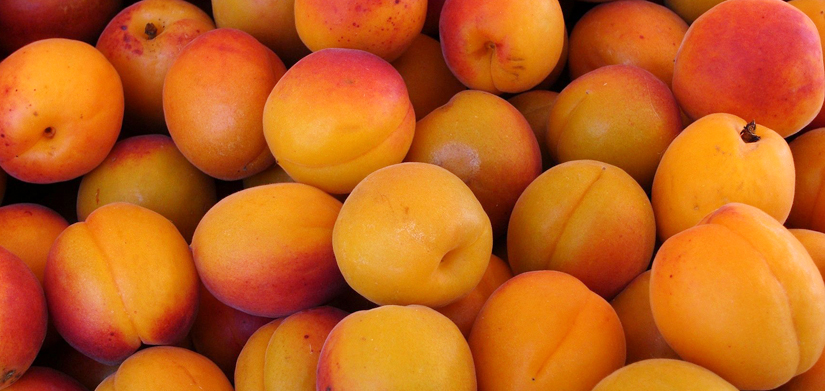
How to improve market opportunities for farmers growing tomatoes in West Africa and apricots in Central Asia are the main objectives of two new research grant opportunities from the Horticulture Innovation Lab.
September 12 is the deadline for research proposals for these two projects, each with funding up to $300,000 over two years. U.S.-based researchers are invited to apply in partnership with international scientists and organizations.
The research will provide evidence-based analysis to help smallholder farmers better connect with agricultural markets, through practices that address fruit quality, food safety, packaging, handling, processing, transportation, market analysis and other postharvest issues. The Horticulture Innovation Lab conducts collaborative research with funding from the U.S. Agency for International Development, as part of Feed the Future, the U.S. government’s global hunger and food security initiative.
Helping apricot farmers in Tajikistan
After a severe frost hit northern Tajikistan’s primary apricot growing region in 2015, farmers in southern Tajikistan’s Khatlon province saw new opportunities to connect with apricot processors and export markets in Russia, the world’s largest importer of dried fruits. The Khatlon province in southern Tajikistan is a key agricultural region, with the country’s highest rates of under-nutrition and largest number of people living below the poverty line.
With new orchards, some of the southern farmers have also adopted technologies used by their neighbors in the north, including tools and practices that may not always be well adapted to local conditions.
To better support USAID/Tajikistan’s efforts to help southern apricot farmers, the Horticulture Innovation Lab will fund research that can provide evidence-based recommendations to address market barriers for apricots grown in the southern region, including food safety challenges and improving product quality.
Helping tomato growers in Burkina Faso and the Sahel

Tomatoes are an important crop in Burkina Faso’s home gardens, both in terms of nutrition and income. But most of the tomato production is on a very small-scale because of lack of storage, transportation, and related infrastructure to get tomatoes to local markets. Fresh tomato pricing can also plummet when narrow harvest windows result in oversupply and without tomato processing as an alternative.
USAID and its partners have already had some success in supporting home gardeners to enhance resilience in the Sahel region of northern Burkina Faso—including improved incomes, food availability and nutritional status.
To expand tomato market opportunities among home gardeners and smallholder farmers working with USAID/Burkina Faso, the Horticulture Innovation Lab is seeking research that can lead to improved postharvest handling, storage, transportation infrastructure, processing techniques, and market analysis for fresh and processed tomatoes.
Serving in-country USAID missions
These two research funding opportunities were developed by the Horticulture Innovation Lab team at UC Davis in close partnership with staff at USAID mission offices in the respective countries. Working with in-country staff to outline the challenges is intended to focus research funding to best meet local needs.
“We asked USAID missions about horticultural problems their local projects face, which scientists could help solve. These targeted grant opportunities are a result of that process,” said Elizabeth Mitcham, director of the Horticulture Innovation Lab at UC Davis. “One advantage to this innovative approach is that research results will be immediately applicable, with the potential for rapid scaling of solutions among local farmers and development organizations.”
Research teams who receive this funding will be expected to work closely with teams in USAID/Burkina Faso and the USAID/Sahel Regional Office for the tomato-focused project or with USAID/Tajikistan for the apricot-focused project.
Full requests for proposals (RFPs) and application details are available at http://horticulture.ucdavis.edu/main/funding.htm.
The Horticulture Innovation Lab builds international partnerships for fruit and vegetable research to improve livelihoods in developing countries. This collaborative research program is led by a team at UC Davis, with funding from USAID as part of Feed the Future, the U.S. government’s global hunger and food security initiative. More at http://horticulture.ucdavis.edu.
More information:
- Request for Proposals: Research on Appropriate Postharvest Handling, Processing, and Marketing of Dried Apricots in Tajikistan (PDF)
- Request for Proposals: Research to Improve Handling, Storage, and Marketing of Tomatoes in Burkina Faso for Resilience in the Sahel-Enhanced (PDF)
- Funding opportunities from the Horticulture Innovation Lab
